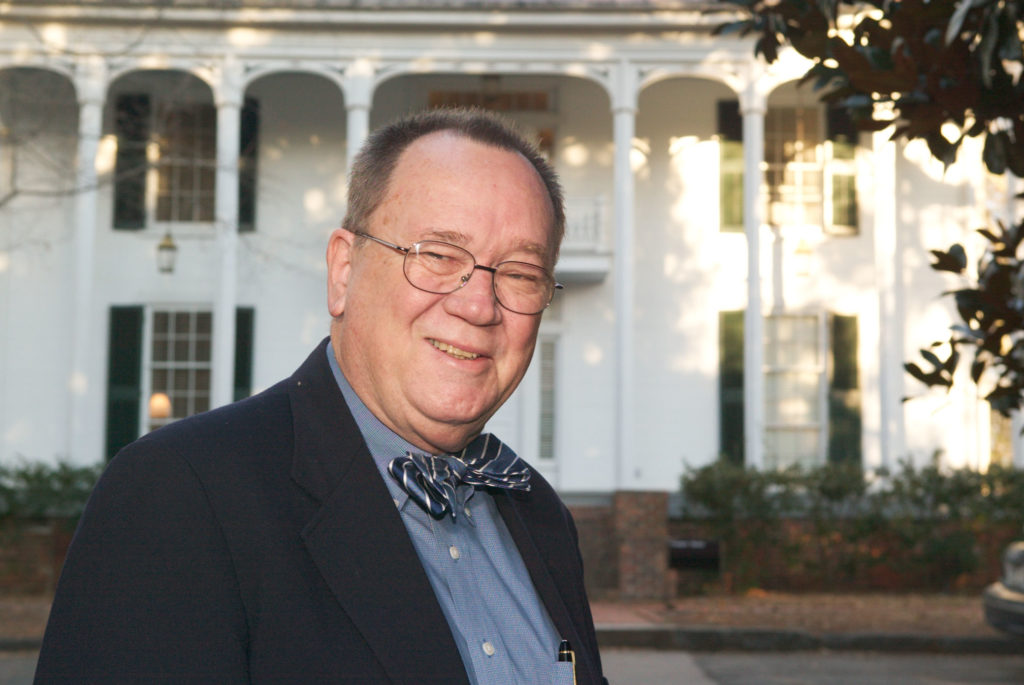Joe Whorton, of the Vinson Institute of Government and the School of Public and International Affairs, is director of UGA’s Poverty Initiative and chair of the 2004 Public Service and Outreach annual conference on Jan. 29. The theme of this year’s conference is “Building Economic Prosperity: Partnering to Break the Cycle of Poverty.” Whorton discussed the issues with Columns.
Columns: Why a poverty initiative?
Whorton: In Georgia there are 91 counties that have had poverty rates among the worst in the country. About 1.8 million Georgians-or about 22 percent of the population of these counties-live in poverty. We have two broad and troubling problems, intergenerational poverty and an economic and wage structure that puts an alarming number of our citizens in poverty. As a land-grant institution, the university has a mandate to do all we can to help improve the quality of life for all Georgians, especially those living in poverty.
Columns: When did you become involved in the Study on Persistent Poverty in the South?
Whorton: At the time the university received the grant to study persistent poverty I was on loan to the Georgia Rural Development Council. The council had done a considerable amount of research in this area and it made sense to include that work. I came on board as coordinator of research for the poverty effort. That effectively merged the two efforts and created a lot of synergy.
Columns: What came out of the study?
Whorton: For me, the most compelling findings of the study are its clear focus on the need for policy change-that public policy regarding the poor has simply not worked. It’s created a culture of dependency. More money has been spent over the past 40 years in the South than in any other region in the country and yet it remains the poorest region. So this failure of public policy mandates a new approach. Identifying that new approach is what our initiative will be about.
Also, the study confirmed that the South is linked by this common misery called poverty. We can make it a common cause across states to address the issue regionally and hopefully create remedies much quicker.
And, finally, the study dispelled the notion that people in poverty are too lazy to work or are engaged in substance abuse. The evidence simply doesn’t support that bias. About 60 percent of all people in poverty work for a living, and so the issue in Georgia, and in the South, is that wages are insufficient to support a reasonable quality of life.
Columns: Who are the major partners in the Poverty Initiative so far?
Whorton: What’s sound and exciting about this initiative is the extent of collaboration. We have a coordinating council that’s composed of the deans of Family and Consumer Sciences, Social Work, and Public and International Affairs, as well as the director of the Vinson Institute of Government. And we’ve also been successful with dialogue about possible research agenda development with the 1890 and 1862 land-grant universities in the seven states that were identified in the study.
We also have support from the federal government, from the Department of Health and Human Services. Benjy Griffith, a private citizen, was also an important contributor to this effort. I don’t think I’ve ever been associated with a project or effort that has had this much interest and traction.
Columns: How many states are involved at this stage?
Whorton: We’re focusing right now on the original seven states in the study-Mississippi, Alabama, Georgia, Florida, North Carolina, South Carolina and Virginia.
Columns: What is the major focus?
Whorton: We’re evolving our work program. We’ve identified campus, community and regional components. On the campus, we’re hoping to stimulate some cross-listed courses that deal with the subject of poverty and the working poor and then, ideally, some coordinated research. On the outreach and economic development side, we hope to coordinate not only UGA’s outreach efforts but also to collaborate with other outreach units in the university system, particularly those located within the 91 counties identified in the study.
Columns: How does the 2004 PSO conference fit in with the initiative?
Whorton: We want to continue a process of informing about the issue, and we want to build some energy and synergy among our colleagues, both in the service program and among the teaching and research faculty. As part of that, we’ve planned an open session with representatives from the UGA Foundation and the Office of the Vice President for Research after the conference [at 3 p.m.] for interested faculty and graduate students to learn about funding opportunities for research projects related to this initiative.
Columns: What is the next major step in the initiative?
Whorton: We are planning to hold a follow-up symposium later this year.
Columns: What do you think the time frame is to achieve measurable results with this initiative?
Whorton: For programs like this, it can take decades to see widespread changes. We have three bills in Congress, right now, one of which was authored by Sen. Miller as a direct result of the study.
Beyond that, [Vice President for Public Service and Outreach] Art Dunning is in this for the long pull. We want to do sound research; we also want to create action and awareness, as well as policy change. So each year we’re going to have a set of goals that clearly put hard expectations on our performance, including maintaining partnerships that catalyze change. For example, if 60 percent of Georgians in poverty work, then we need to look at our economic development strategies and ask if we are we recruiting and preparing our citizens for the kinds of jobs that will provide a decent wage.
